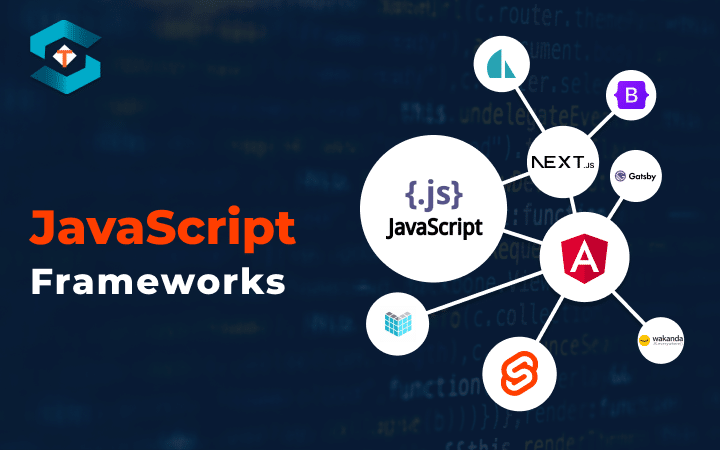JavaScript frameworks are pre-written, standardized sets of code that help developers build web applications efficiently. They provide a structure for developers to create robust, scalable, and maintainable web applications by offering tools, libraries, and reusable components. It supports various data types such as numbers, strings, booleans, objects, arrays, functions, and more. It’s loosely typed, allowing variables to hold different types of data. Here are some popular JavaScript frameworks:
React:
Developed by Facebook, React is a widely used library for building user interfaces. It employs a component-based architecture and allows developers to create reusable UI components.
Angular:
Created and maintained by Google, Angular is a comprehensive framework for building web applications. It follows the MVC (Model-View-Controller) architecture and offers features like two-way data binding.
Vue.js:
Vue.js is a progressive JavaScript framework that is lightweight and easy to integrate. It focuses on the view layer and provides a flexible and approachable structure for building UIs.
Node.js:
Although not a traditional front-end framework, Node.js is a runtime environment that enables developers to run JavaScript code on the server-side. It’s commonly used for building scalable network applications.
Ember.js:
Ember.js is an opinionated framework that emphasizes convention over configuration. It provides a set of tools and practices to streamline the development process.
Svelte:
Unlike other frameworks, Svelte shifts the work from the browser to the build step. It compiles the code to highly efficient JavaScript during the build process, resulting in smaller bundle sizes and optimized performance.
Backbone.js:
This is a lightweight framework that provides the structure for building single-page applications by providing models, views, collections, and event handling.
These frameworks and libraries have their strengths and weaknesses, and their suitability often depends on the specific requirements of a project, the development team’s familiarity, scalability needs, and the type of application being built. Developers often choose frameworks based on factors such as ease of learning, community support, performance, scalability, and flexibility.





